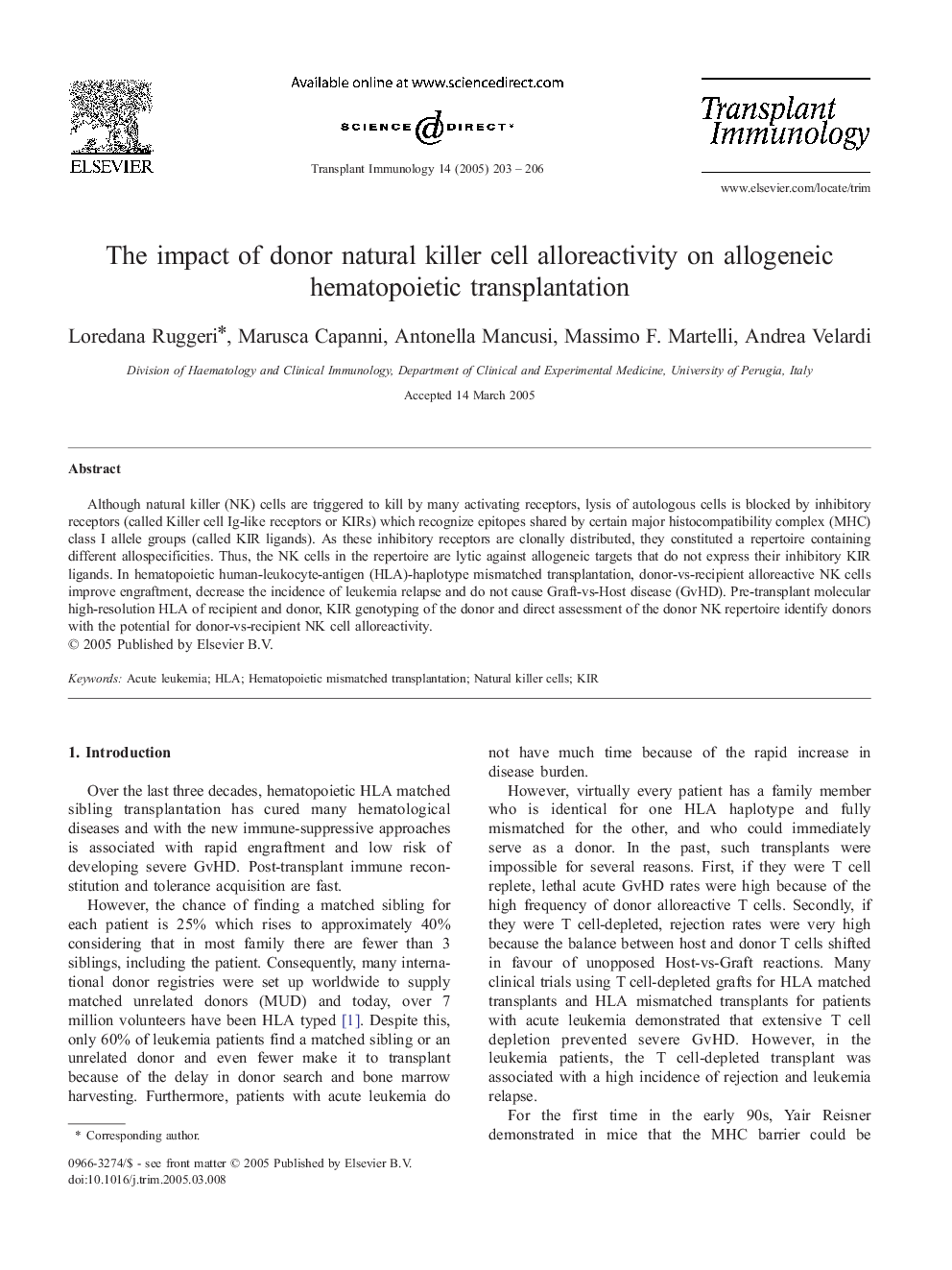| Article ID | Journal | Published Year | Pages | File Type |
|---|---|---|---|---|
| 9273802 | Transplant Immunology | 2005 | 4 Pages |
Abstract
Although natural killer (NK) cells are triggered to kill by many activating receptors, lysis of autologous cells is blocked by inhibitory receptors (called Killer cell Ig-like receptors or KIRs) which recognize epitopes shared by certain major histocompatibility complex (MHC) class I allele groups (called KIR ligands). As these inhibitory receptors are clonally distributed, they constituted a repertoire containing different allospecificities. Thus, the NK cells in the repertoire are lytic against allogeneic targets that do not express their inhibitory KIR ligands. In hematopoietic human-leukocyte-antigen (HLA)-haplotype mismatched transplantation, donor-vs-recipient alloreactive NK cells improve engraftment, decrease the incidence of leukemia relapse and do not cause Graft-vs-Host disease (GvHD). Pre-transplant molecular high-resolution HLA of recipient and donor, KIR genotyping of the donor and direct assessment of the donor NK repertoire identify donors with the potential for donor-vs-recipient NK cell alloreactivity.
Related Topics
Life Sciences
Immunology and Microbiology
Immunology
Authors
Loredana Ruggeri, Marusca Capanni, Antonella Mancusi, Massimo F. Martelli, Andrea Velardi,
